 In 2007, the late Christopher Hitchens published his bestselling book, god is Not Great. As you might imagine the book was not a love letter to the Lord. Hitchens, an atheist, launched his complaint against religion in this book and his message was enthusiastically received by the many people who agreed with him. What is particularly telling about the book is the subtitle: “How Religion Poisons Everything.”
In 2007, the late Christopher Hitchens published his bestselling book, god is Not Great. As you might imagine the book was not a love letter to the Lord. Hitchens, an atheist, launched his complaint against religion in this book and his message was enthusiastically received by the many people who agreed with him. What is particularly telling about the book is the subtitle: “How Religion Poisons Everything.”
That is certainly an extreme opinion, and, again, it is one that is shared by many today. In fact, that premise (that religion poisons everything) has become almost an assumption among many modern people. But is it true? Specifically, is it true of Christianity, a religion that Hitchens had especial disdain for?
Put another way, has Christianity been good for the world or has it been bad for the world?
In exploring this question I want to offer two prefatory remarks. First, it needs to be understood that the truthfulness of Christianity and the truthfulness of the gospel of C hrist does not hinge upon the behavior of His followers. This is not a cop-out. This is simple logic, especially when we consider that one of the tenets of Christianity is the fallenness and sinfulness of all people.
This is not to say, of course, that the behavior of Christians is unimportant. That would be an absurd thing to say and even a blasphemous thing to say. How we act and how we as a Church have acted is extremely important. It plays a large part in the willingness of people to hear what we have to say. But the fact that Christian behavior is very important does not mean that Christian behavior has the power to falsify what Jesus said about Himself and the Father. Our failure to follow Jesus makes us tragic hypocrites, to be sure, but it does not make Jesus a liar.
Secondly, I want to acknowledge up front that, yes, Christians have done many bad and evil and regrettable and unChristlike things over the last 2,000 years. This is to our shame. I am therefore not trying to create a romantic picture of the past or present.
What I want to do, instead, is this: I want to say that those who depict Christianity itself as evil or as a poison or a force for bad can only do so by (a) grossly overplaying Christianity’s alleged crimes and (b) grossly downplaying Christianity’s virtues.
In short, Hitchens’ subtitle, “How Religion Poisons Everything,” is absurd if he was speaking of Christianity, which, in part, he certainly was. In point of fact, Christianity, even with its glaring faults, has indeed done amazing things in the world.
The coming of Jesus brought a sense of dignity and worth and value to mankind that the pagan cultures did not share.
The first thing we must realize is that inherent within the gospel, the central message of Christianity, are the theological and philosophical ingredients for a revolution that swept and is continuing to sweep the world. Those ingredients are the following four doctrines: the imago Dei, the love of God, the incarnation, and the call to incarnate ministry.
The imago Dei
The imago Dei is “the image of God.” Genesis 1 provides us with the foundational text.
26 Then God said, “Let us make mankind in our image, in our likeness, so that they may rule over the fish in the sea and the birds in the sky, over the livestock and all the wild animals, and over all the creatures that move along the ground.” 27 So God created mankind in his own image, in the image of God he created them; male and female he created them.
The doctrine of the image of God means that men and women have inherent worth and dignity and value because humanity is not an accident and does not consist of mere animals. Rather, humanity is made up of image bearers who reflect the character of God. We are fallen, of course, and the image of God in us is marred and covered by our own rebellion and sinfulness, but we still bear the image.
The love of God
Along with the imago Dei is the doctrine of the love of God. To call this a doctrine seems coldly reductive, for the love of God is the very heartbeat of the gospel and stretches over the scriptures like a canopy from Genesis to Revelation. In John 3 we read:
16 “For God so loved the world, that he gave his only Son, that whoever believes in him should not perish but have eternal life. 17 For God did not send his Son into the world to condemn the world, but in order that the world might be saved through him.
Christianity therefore asserts (1) that human beings bear the image of God and (2) that God loves human beings. But Christianity also teaches that the world is fallen. Even so, God’s love still stands. In fact. It was out of love that God sent His Son to us.
The incarnation
The incarnation refers to God taking on human flesh and being born of the Virgin Mary. It refers to God coming to mankind, reaching to lost men and women in and through Jesus. Thus, in John 1 we read:
14 The Word became flesh and made his dwelling among us. We have seen his glory, the glory of the one and only Son, who came from the Father, full of grace and truth.
So God comes to us in our lostness, and redeems through Christ all who will come to Him in faith and repentance. In Christ, then, God has redeemed and created a people for Himself. Not only has He redeemed us, He has called us to be the body of Christ. That is, He has called us to incarnate ministry.
The call to incarnate ministry
God calls the Church to live out the life of Christ, to reach out to the world with the same heart of love that our Lord Jesus has. We are called to incarnate ministry in Philippians 2.
5 Have this mind among yourselves, which is yours in Christ Jesus, 6 who, though he was in the form of God, did not count equality with God a thing to be grasped, 7 but emptied himself, by taking the form of a servant, being born in the likeness of men. 8 And being found in human form, he humbled himself by becoming obedient to the point of death, even death on a cross.
This is most significant: we are called to do today what Christ has done. We are called to love with God’s love, to go as Christ came, and to help people return to the God in Who’s image they are made.
These four theological ingredients – the image of God, the love of God, the incarnation, and the call to incarnate ministry – come together in the Christian movement in such a way as to grant a dignity to mankind and a framework in which the early Church, and the Church today, could love with absolute reckless abandon all of humanity. These four doctrines converge in Christ to create an incendiary revolution of love and care and compassion.
One beautiful expression of this comes from the novel Doctor Zhivago in which the character Nikolai Nikolaievich records the following thoughts about what Christianity brought into the world in his diary:
Rome was a flea market of borrowed gods and conquered peoples, a bargain basement on two floors, earth and heaven, a mass of filth convoluted in a triple knot as in an intestinal obstruction. Dacians, Herulians, Scythians, Sarmatians, Gyperboreans, heavy wheels without spokes, eyes sunk in fat, sodomy, double chins, illiterate emperors, fish fed on the flesh of learned slaves. There were more people in the world than there have ever been since, all crammed into the passages of the Coliseum, and all wretched.
And then, into this tasteless heap of gold and marble, He came, light and clothed in an aura, emphatically human, deliberately provincial, Galilean, and at that moment gods and nations ceased to be and man came into being – man the carpenter, man the plowman, man the shepherd with his flock of sheep at sunset, man who does not sound in the least proud, man thankfully celebrated in all the cradle songs of mothers and in all the picture galleries the world over.”[1]
Nikolaievich is right. The greatest good that Christianity has brought into the world is the gospel, the liberating, humbling, empowering gospel of Jesus.
Christianity is a revolution that has sought to alleviate suffering and evil in the world in a way that is truly astonishing.
This theological foundation gave rise to an amazing revolution of love and compassion and mercy. In short, the Christian Church immediately made amazing strides in alleviate suffering and combating evil in the world.
Greek Orthodox philosopher and theologian David Bentley Hart has written of “Christianity’s twenty centuries of unprecedented and still unmatched moral triumphs – its care of widows and orphans, its almshouses, houses, hospitals, foundling homes, schools, shelters, relief organizations, soup kitchens, medical missions, charitable aid societies.”[2] Hart went on to give numerous examples of Christian charity, including the fact that “during the Middle Ages, the Benedictines alone were responsible for more than two thousand hospitals in Western Europe.”[3]
That is but one small example out of many. In a very insightful article entitled, “A New Era in Roman Healthcare,” Professor Gary Ferngren of Oregon State University wrote of Christianity’s revolutionary and attention-grabbing care for the poor in the Roman Empire. After observing that, “compassion was not a well-developed virtue among the pagan Romans; mercy was discouraged, as it only helped those too weak to contribute to society,” Ferngren offered some examples of how Christianity changed this unfortunate reality. Consider:
- “Church leaders encouraged all Christians to visit the sick and help the poor, and each congregation also established an organized ministry of mercy. Presbyters (priests) and deacons added benevolent ministry to their sacramental roles.”
- “By the third century the number of those receiving aid from the hands of the church had grown considerably, especially in large cities. Congregations created additional minor clerical orders, such as subdeacons and acolytes, to assist deacons in benevolence as well as liturgy.”
- “Altogether the church in Rome ministered to 1,500 widows and others in need. It has been estimated that the Roman church spent annually between 500,000 and 1,000,000 sesterces—an enormous sum—on benevolent work.”
- Concerning the 251 AD plague in Carthage, North Africa: “Carthage’s bishop, Cyprian, enjoined the city’s Christians to give aid to their persecutors and to care for the sick. He urged the rich to donate funds and the poor to volunteer their service for relief efforts, making no distinction between believers and pagans. Under Cyprian’s direction, Christians buried the dead left in the streets and cared for the sick and dying. For five years he stood in the breach, organizing relief efforts, until he was forced into exile.”
- Concerning the 416 AD plague in Alexandria, Egypt: “the Christian patriarch of that city organized a corps of men recruited from the poor classes to transport and nurse the sick. They were called the parabalani, the “reckless ones,” because they risked their lives by exposing themselves to contagion while assisting the sick.”
- “In the early fourth century, lay Christian orders began to appear in the large cities of the Eastern Roman Empire. The two best known were the spoudaioi (“the zealous ones”) and (in Egypt) the philoponoi (“lovers of labor”). The mission of these groups, drawn mostly from the lower classes, was to reach out to the indigent sick in cities such as Alexandria and Antioch. These cities had a large population of homeless sick and dying on the streets. The philoponoi would distribute food and money to them and take them to the public baths, where their basic hygienic needs could be met and they could find warmth in winter. None had medical training, but they were motivated by compassionate concern.”[4]
The old canard about the Church exhibiting two thousand years worth of cruelty, indifference, and violence has become so commonplace that the average person today is most unlikely to have heard much if anything about the amazing things that God has done through the Church throughout her history. In truth, honest observers, whether Christian or not, have marveled at the kindness that the Church has shown throughout history. The Swiss historian of medicine and Professor of the History of Medicine at The Johns Hopkins University, Henry Sigerist wrote that Christianity introduced the “most revolutionary and decisive change in the attitude of society toward the sick.” He continued:
Christianity came into the world as the religion of healing, of the joyful gospel of the Redeemer and of Redemption. It addressed itself to the disinherited, to the sick and afflicted, and promised them healing, a restoration of both spiritual and physical…it became the duty of the Christian to attend to the sick and poor of the community…the social position of the sick man thus became fundamentally different from what it had been before. He assumed a preferential treatment which has been his ever since.[5]
Even more striking is to hear an acknowledgement of Christianity’s kindness and works of mercy from an ardent opponent of the faith. Julian the Apostate, in the early 360’s AD, was a Roman emperor who sough the eradication of the early Christian movement and worked towards a revival of the old pagan religions. The problem was that the paganism he was seeking to revive was failing to exhibit the kind of benevolence for mankind that the Christians he was seeking to thwart were exhibiting. Julian wrote a famous letter to Arsacius, high pagan priest of Galatia, in which he said the following:
Why do we not observe that it is their [the Christians’] benevolence to strangers, their care for the graves of the dead, and the pretended holiness of their lives that have done most to increase atheism [unbelief of the pagan gods]?…For it is disgraceful that, when no Jew ever has to beg, and the impious Galileans [Christians] support not only their own poor but ours as well, all men see that our people lack aid from us. Teach those of the Hellenic faith to contribute to public service of this sort.[6]
Amazing! Here we see a pagan emperor instructing his pagan priests to study Christianity so that they could learn how to be loving and kind and merciful to others. That is quite an endorsement!
Contrary to the consistent charge of bloodshed, Christianity is not a primary cause for war.
Having shown evidence of the great good that Christianity has done, I would like now to refute a popular claim that simply needs to be refuted, namely, the charge that Christianity is a bloody, violent religion that has been a primary cause of war in the world. For one example of this charge, consider the following statement that was sent in an email to one of our church members from one of his friends.
[I] believe that organized religion is the cause of wars, hate, bigotry, non-acceptance and cruelty. History proves that, the very words in the Bible proves it, the recent past & present proves it.
Another example can be seen in the words of Robert Green Ingersoll, who wrote:
Religion makes enemies instead of friends. That one word, “religion,” covers all the horizon of memory with visions of war, of outrage, of persecution, of tyranny, and death. . . . Although they have been preaching universal love, the Christian nations are the warlike nations of the world.[7]
Well. That is quite a stunning accusation. But is it true? In his amazing book Atheist Delusions, David Bentley Hart writes of his frustration with this particular accusation.
[I]t is sometimes difficult, frankly, to be perfectly generous in one’s response to the sort of invective currently fashionable among the devoutly undevout, or to the sort of historical misrepresentations it typically involves. Take for instance Peter Watson, author of a diverting little bagatelle of a book on the history of invention, who, when asked not long ago by the New York Times to name humanity’s worst invention, blandly replied, “Without question, ethical monotheism…. This has been responsible for most of the wars and bigotry in history.”‘
After touching briefly on some of the reasons why wars have actually been fought, Hart concludes:
By contrast, the number of wars that one could plausibly say have actually been fought on behalf of anything one might call “ethical monotheism” is so vanishingly small that such wars certainly qualify as exceptions to the historical rule.[8]
These are two very different statements indeed! Who is right? Has Christianity, and, for that matter, religion in general, been the primary cause of war in the world or has it not.
In his book, The Irrational Atheist, Vox Day writes of his own examination of history’s wars and their causes.
A more systematic review of the 489 wars listed in Wikipedia’s list of military conflicts, from Julius Caesar’s Gallic Wars to the 1969 Football War between Honduras and El Salvador, shows that only fifty-three of these wars—10.8 percent—can reasonably be described as having a religious aspect, even if one counts each of the ten Crusades separately.
Day next goes on to cite the three-volume Encyclopedia of Wars, an exhaustive scholarly work of over 1,500 pages that looks at over 1,763 wars. Of those 1,763 wars, the authors concluded that 123 wars could be said to be religious in nature. Vox Day explains:
That is 123 wars in all, which sounds as if it would support the case of the New Atheists, until one recalls that these 123 wars represent only 6.98 percent of all the wars recorded in the encyclopedia…It’s also interesting to note that more than half of these religious wars, sixty-six in all, were waged by Islamic nations, which is rather more than might be statistically expected considering that the first war in which Islam was involved took place almost three millennia after the first war chronicled in the encyclopedia, Akkad’s conquest of Sumer in 2325 B.C. In light of this evidence, the fact that a specific religion is currently sparking a great deal of conflict around the globe cannot reasonably be used to indict all religious faith, especially when one considers that removing that single religion from the equation means that all of the other religious faiths combined only account for 3.23 percent of humanity’s wars. The historical evidence is conclusive. Religion is not a primary cause of war.[9]
I repeat what I said earlier: Christianity has committed some heinous crimes over the years and the Church’s betrayals should not be excused. But I would simply like to point out that the charge of Christianity’s warlike nature is simply a slander, a gross misrepresentation of the actual historical record. I do not think such a charge should be allowed to stand unchallenged.
Christians could begin here and now to reclaim and live out once again the revolutionary nature of the message of the cross and empty tomb, and, in so doing, capture the attention and curiosity of the watching world as it once did.
All of this raises an interesting question: could Christianity, which, today, is tragically anemic, regain its revolutionary reputation through amazing acts of transformative benevolence, love, and compassion? Indeed. Indeed we could.
In fact, wherever Christianity is actually lived out, people still marvel at it. Case in point: on December 27, 2008, The Times of London published an article by Matthew Parris entitled “As an atheist, I truly believe Africa needs God.”
Before Christmas I returned, after 45 years, to the country that as a boy I knew as Nyasaland. Today it’s Malawi, and The Times Christmas Appeal includes a small British charity working there. Pump Aid helps rural communities to install a simple pump, letting people keep their village wells sealed and clean. I went to see this work.
It inspired me, renewing my flagging faith in development charities. But travelling in Malawi refreshed another belief, too: one I’ve been trying to banish all my life, but an observation I’ve been unable to avoid since my African childhood. It confounds my ideological beliefs, stubbornly refuses to fit my world view, and has embarrassed my growing belief that there is no God.
Now a confirmed atheist, I’ve become convinced of the enormous contribution that Christian evangelism makes in Africa: sharply distinct from the work of secular NGOs, government projects and international aid efforts. These alone will not do. Education and training alone will not do. In Africa Christianity changes people’s hearts. It brings a spiritual transformation. The rebirth is real. The change is good.
I used to avoid this truth by applauding – as you can – the practical work of mission churches in Africa. It’s a pity, I would say, that salvation is part of the package, but Christians black and white, working in Africa, do heal the sick, do teach people to read and write; and only the severest kind of secularist could see a mission hospital or school and say the world would be better without it. I would allow that if faith was needed to motivate missionaries to help, then, fine: but what counted was the help, not the faith.
But this doesn’t fit the facts. Faith does more than support the missionary; it is also transferred to his flock. This is the effect that matters so immensely, and which I cannot help observing.[10]
Oh church, do you see? The unbelieving world is watching. Will we be a revolution again, a Jesus revolution? In Revelation 3, Jesus calls us to return to Him.
1 “To the angel of the church in Sardis write: These are the words of him who holds the seven spirits of God and the seven stars. I know your deeds; you have a reputation of being alive, but you are dead. 2 Wake up! Strengthen what remains and is about to die, for I have found your deeds unfinished in the sight of my God. 3 Remember, therefore, what you have received and heard; hold it fast, and repent. But if you do not wake up, I will come like a thief, and you will not know at what time I will come to you.
Church, let us wake up and live again! Let us live in such a way that the world marvels at us, and, more importantly, at our King, Jesus.
The fact of the matter is, the revolutionary spirit of early Christianity is still alive and well in the lives of many Christians today. And that makes sense. If we have been born again, we possess the Spirit of the living God through the saving work of Jesus Christ our Lord. The Lord Jesus has never changed. The Spirit of God today is the same Spirit Who led men and women to turn the world upside down with astounding acts of compassion in the first century. That is why even today, amidst all the failures of the Church, we see amazing glimpses of the Kingdom of God, living and active and still revolutionary.
How else to describe the behavior of the members of Emanuel African Methodist Episcopal Church in Charleston, South Carolina, who responded to Dylann Roof’s murder of nine church members (because he said he wanted to start a race war) by forgiving him?
“I’m reminded of some news media persons that wondered why the nine families all spoke of forgiveness and didn’t have malice in their heart,” [Rev. Norvel] Goff said during the Sunday service. “It’s that the nine families got it,” he said, reminding worshippers that members’ unwavering faith in God shows how to “love our neighbors as we love ourselves.”[11]
They “got it.”
And we “got it.”
And we need to live it.
Has Christianity been good for world? Indeed it has. It has had its failures, to be sure, but it has also succeeded in truly amazing ways, bringing light and life and hope and transformation to the world.
May it do so again, and may it do so with us.
[1] Boris Pasternak. Doctor Zhivago. (New York, N.Y.: Pantheon Books, Inc., 1958), p. 43.
[2] David Bentley Hart. Atheist Delusions: The Christian Revolution and Its Fashionable Enemies (Kindle Locations 184-185). Kindle Edition.
[3] David Bentley Hart. Kindle Location 434.
[4] https://www.christianhistoryinstitute.org/magazine/article/new-era-in-roman-healthcare/
[5] Darrel W. Amundsen and Gary B. Ferngren, “Virtue and Medicine from Early Christianity through the Sixteenth Century.” Virtue and Medicine: Explorations in the Character of Medicine. Volume 1. Earl E. Shelp, ed., Philosophy and Medicine. 17 (D. Reidel Publishing Company, 1985), p.50.
[6] https://www.milestonedocuments.com/documents/view/julian-the-apostate-letter-to-arsacius/text
[7] Quoted in Day, Vox (2008-02-01). The Irrational Atheist: Dissecting the Unholy Trinity of Dawkins, Harris, And Hitchens (p. 97). Perseus Books Group. Kindle Edition.
[8] David Bentley Hart. Kindle Locations 116-126.
[9] Day, Vox, p.103, 105-106.
[10] https://www.thetimes.co.uk/tto/opinion/columnists/matthewparris/article2044345.ece
[11] https://www.cnn.com/2015/06/21/us/charleston-church-shooting-main/
 This work constitutes a continuation of Walton’s The Lost World of Genesis One, that I reviewed earlier. The basic thesis of The Lost World of Genesis One is repeated here and that line of thought is thereafter applied to Genesis 2 and 3. This work is more detailed and also, I would say, more difficult than the first book. Allow me to say up front that this is one of those works that I’m going to need to tackle a second time, so my comments here need to be seen as first-pass reflections.
This work constitutes a continuation of Walton’s The Lost World of Genesis One, that I reviewed earlier. The basic thesis of The Lost World of Genesis One is repeated here and that line of thought is thereafter applied to Genesis 2 and 3. This work is more detailed and also, I would say, more difficult than the first book. Allow me to say up front that this is one of those works that I’m going to need to tackle a second time, so my comments here need to be seen as first-pass reflections.

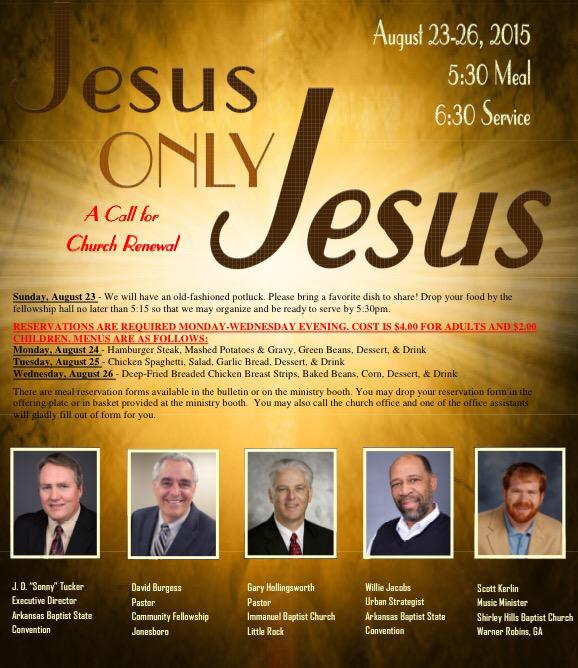
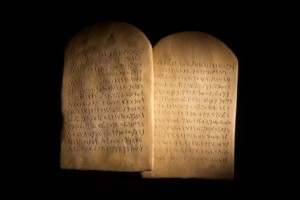


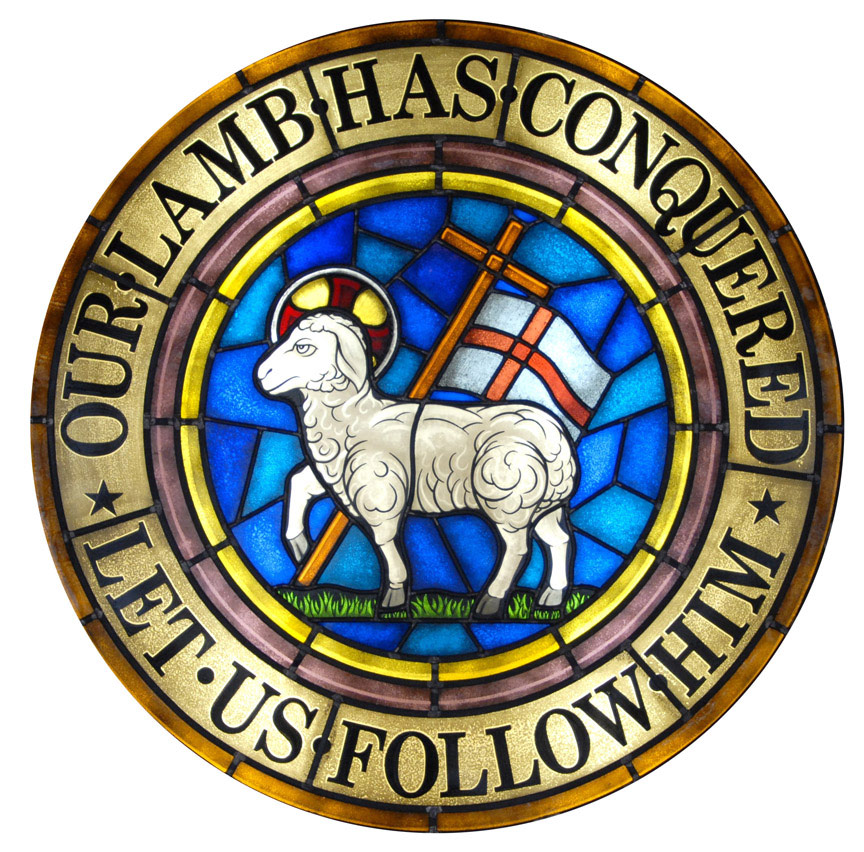
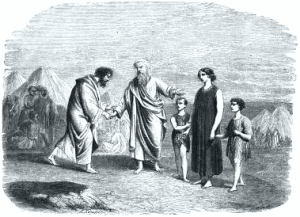
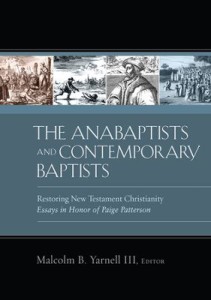 This book contains the presentations that were given at a 2012 conference by (essentially) the same name at my alma mater, Southwestern Baptist Theological Seminary in Fort Worth, Texas. (Videos of the presentations can be viewed
This book contains the presentations that were given at a 2012 conference by (essentially) the same name at my alma mater, Southwestern Baptist Theological Seminary in Fort Worth, Texas. (Videos of the presentations can be viewed